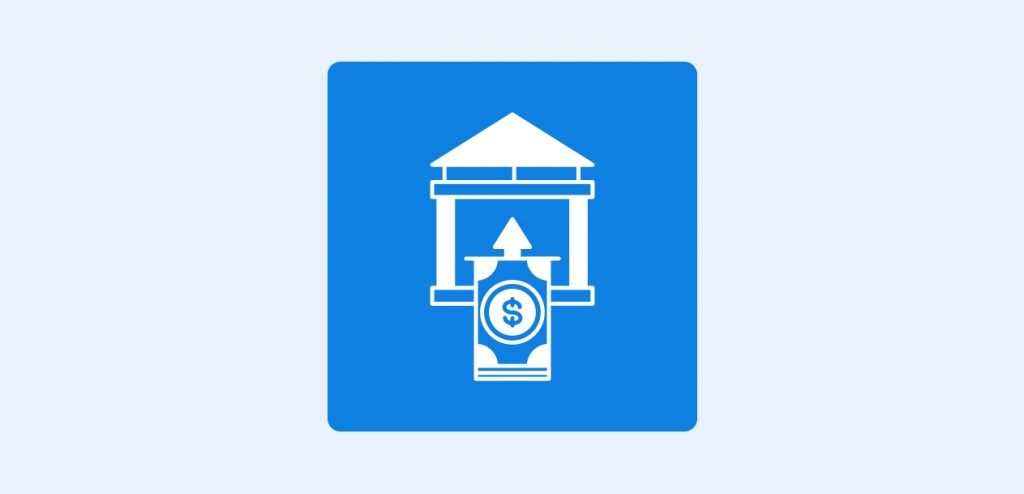Central banks play a central role (pun intended) in Forex trading. They’re in charge of monetary policies that govern currency exchange rates, and they hold significant control over their country’s currency in general.
So, if you are a serious Forex trader, you should pay attention to how central banks manage and control their money. One of the most useful concepts is quantitative tightening — a central bank policy tool used to manage how much currency is available for use.
Quantitative tightening, or simply QT, is a monetary policy employed by central banks to prevent inflation and “cool off” the economy. It is implemented by:
-
- Increasing the bank’s interest rates, usually by pushing down government bond yields.
- Reducing liquidity of the currency, usually by reducing its quantity in circulation.
Quantitative tightening is also known as “balance sheet normalisation,” where central banks attempt to equalise the prices of their purchased assets. Central banks implement QTs to reduce the amount of money available, which affects everything from consumer purchases, investments, and forex trading.
What is the relationship between QT and currency?

There are many factors that determine currency rates, but the most significant of all is supply and demand. If a currency is widely available, it’s more likely to cost less. If a currency is scarce, its value increases.
In general, QT will make a currency’s price appreciate. Keep in mind that QT alone won’t make this happen, but it’s a rule of thumb that most markets follow. There are circumstances that influence QT’s effect on the market, like the volatility of the currency pair you are trading.
Currencies that are subject to QT have high interest rates, which make them extremely profitable if investors choose to cash in their returns. High-value currencies are incredibly attractive to foreign investors, which will encourage imports and reduce the cost of exported money.
For Forex traders, that means one thing: the currency will cost more. This means it’s time to either sell if you’re looking to exit the market with a profit or buy if you’re looking to gain more. Any currency going through QT will almost always have a higher asking price than it’s opposing currency pair. This is good news for you if you happen to hold plenty of it to buy or sell.
Is quantitative tightening just currency manipulation?
Because of their similar goals (which is currency control), a lot of people think that QT is the same as currency manipulation. While both are at the directive of central banks, QT is a monetary policy for controlling how much currency is available, while currency manipulation changes the value of that currency through their interest rate policies.
In simple terms: QT is central banks literally taking money out of circulation, while currency manipulation is central banks changing how much it actually costs.
To understand why this difference matters, you need to remember that, as a rule, countries prefer their currencies to be on the weaker side. This isn’t because they don’t believe that their currency has no value, but it’s a way to remain competitive in the world market, especially against other currencies.
Traders will likely purchase weaker currencies. And eventually, the number of people buying this weaker currency may actually surpass the value of higher-priced currencies.
Remember: the point of a weaker currency is to encourage spending and promote inflation, which helps the country’s economy.
Is quantitative tightening good or bad?
To answer this question, we need to look at it from two viewpoints:
For countries, it is good (for the most part).
There are a few countries that employed quantitative easing (the opposite of QT) within the past 10 years, with Japan being a notable case. The intent was to kickstart their economies and boost in their domestic currency’s attractiveness to foreign investors. However, a majority of these ventures have proved inconclusive or incapable of achieving their goals. As a result, QT became the “safer” monetary policy to execute to make sure that inflation doesn’t get too out of hand. Currencies will still appreciate while remaining attractive to foreign investors.
For Forex traders, it is bad, but not all bad.
QT hasn’t been tried on a massive scale before, but it will most likely result in two things: raise the cost of borrowing and reduce asset prices. This is bad news to most Forex traders because this makes the risk (and the cost) of trading with these currencies much higher.
Of course, there are cases where QT may positively affect a currency, but these changes often take months to years to fully influence rates. It ultimately falls to the trading style of Forex traders themselves (and specifically on the currencies affected) to decide on whether to buy or sell.
Disclaimer: All material published on our website is intended for informational purposes only and should not be considered personal advice or recommendation. As margin FX/CFDs are highly leveraged products, your gains and losses are magnified, and you could lose substantially more than your initial deposit. Investing in margin FX/CFDs does not give you any entitlements or rights to the underlying assets (e.g. the right to receive dividend payments). CFDs carry a high risk of investment loss.




